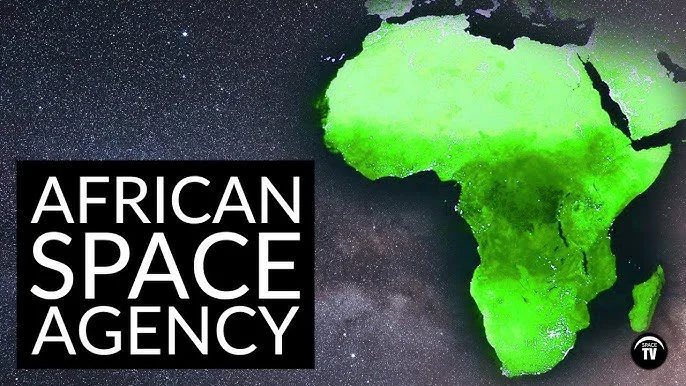Over the past decade, Africa has made significant strides in space exploration and technology. While the continent’s space ambitions may have once seemed distant and unattainable, 2023 marks a pivotal year in Africa’s journey into the cosmos. Several African nations are now investing heavily in space programs, aiming to boost technological development, improve national security, and address pressing challenges such as climate change, agriculture, and telecommunications. Africa’s space programs are no longer just an aspiration—they are fast becoming a reality that promises to reshape the continent’s future.
In this article, we explore the major developments of African space programs in 2023, highlighting the countries leading the charge, the objectives behind their space ambitions, and the potential impact of these advancements on the continent and the world.
1. Nigeria’s National Space Research and Development Agency (NASRDA)
Nigeria is one of the pioneers of space exploration in Africa, with the National Space Research and Development Agency (NASRDA) established in 1999. As of 2023, NASRDA continues to make remarkable progress. The agency’s primary goals include enhancing communication infrastructure, environmental monitoring, disaster management, and agriculture.
In 2023, Nigeria launched several satellites into space, including the NigeriaSat-2 and NigeriaSat-X. These satellites play a crucial role in monitoring environmental changes, improving precision farming, and enhancing disaster response. Nigeria’s space program also aims to develop indigenous satellite-building capacity, with a long-term vision of sending a Nigerian astronaut into space by the 2030s.
2. South Africa’s South African National Space Agency (SANSA)
South Africa has been at the forefront of space science and technology in Africa since the formation of the South African National Space Agency (SANSA) in 2010. In 2023, SANSA has strengthened its capabilities in Earth observation, space weather, and satellite development. South Africa’s MeerKAT radio telescope, part of the global Square Kilometre Array (SKA) project, has provided critical insights into deep space, contributing to global astronomical research.
In addition, SANSA has made advances in satellite engineering and data collection, with its satellites being used to monitor climate change, track natural disasters, and improve urban planning. South Africa’s space program is a hub for scientific innovation, with its space agency focusing on fostering international collaborations and promoting STEM education across the continent.
3. Egypt’s National Authority for Remote Sensing and Space Sciences (NARSS)
Egypt has a long history in space exploration, dating back to the early 1990s when it launched its first satellite. In 2023, Egypt remains one of the most advanced African countries in space technology. The National Authority for Remote Sensing and Space Sciences (NARSS) continues to lead Egypt’s space endeavors, with the launch of satellites like EgyptSat-A designed for Earth observation and communication purposes.
Egypt’s space program has seen significant expansion, with plans to launch the MisrSat-2 satellite in the near future. This satellite will focus on monitoring Egypt’s natural resources, including water and agricultural lands. In addition, Egypt is investing in a regional space hub, collaborating with other African nations to share knowledge, technology, and resources.
4. Ethiopia’s Space Science Society and Space Programs
In 2023, Ethiopia has emerged as a rising player in Africa’s space race. The Ethiopian Space Science Society (ESSS), founded in 2004, has laid the foundation for the country’s space aspirations. Ethiopia’s first satellite, Ethiopia ETRSS-1, launched in 2019 with the help of China, signaled the country’s commitment to space exploration.
In 2023, Ethiopia has made advancements in its satellite development program, focusing on Earth observation to monitor climate patterns, agricultural productivity, and environmental changes. The government is working on expanding its space program, with a long-term vision to establish Ethiopia as a key player in the African space sector. The country has also placed a strong emphasis on education, building its human capital by investing in STEM education and space science programs for its youth.
5. Algeria’s Space Program – ASAL
Algeria is another African nation with a well-established space program. The Algerian Space Agency (ASAL), founded in 2002, has overseen the development of Algeria’s satellites, including AlSat-1, AlSat-2, and Alcomsat-1. These satellites are used for Earth observation, telecommunications, and monitoring Algeria’s natural resources.
In 2023, Algeria’s space program remains focused on increasing the country’s technological independence and contributing to the development of space technology across Africa. With a well-developed infrastructure for satellite manufacturing and data analysis, Algeria is positioning itself as a leader in the African space community, and its cooperation with global partners is helping to boost space-based research and innovation.
6. Ghana’s Space Ambitions
Ghana may be relatively new to space exploration, but it has shown remarkable progress in a short time. In 2017, Ghana launched its first satellite, GhanaSat-1, marking its entry into space exploration. In 2023, Ghana’s space program is gaining momentum, with plans to launch more satellites for telecommunications, disaster management, and agricultural monitoring.
Ghana is also focusing on capacity building, investing in space science education and research. The country has established partnerships with international space agencies to develop the skills and expertise necessary for a thriving space industry. Ghana’s space ambitions reflect its commitment to using space technology for sustainable development and addressing local challenges such as food security and environmental conservation.
7. Angola’s Growing Space Sector
Angola has joined the ranks of African countries investing in space technology, with the successful launch of AngoSat-1 in 2017. Although the satellite experienced communication issues, Angola has not been deterred in its space ambitions. In 2023, Angola is preparing for the launch of AngoSat-2, which will provide critical communication services for the country and the wider region.
Angola’s space program aims to improve telecommunications, enhance national security, and support economic development. By leveraging satellite technology, Angola is positioning itself as a key player in Africa’s emerging space economy.
Why Africa’s Space Programs Matter
Africa’s space programs are about more than just prestige—they are about solving critical problems that the continent faces. Satellite technology is helping African nations monitor and respond to climate change, manage natural disasters, improve agricultural productivity, and expand telecommunications infrastructure. Space technology is also creating new economic opportunities, from satellite manufacturing to data analytics, and it is inspiring a new generation of African scientists, engineers, and innovators.
Moreover, Africa’s space programs are promoting international cooperation. African nations are increasingly collaborating with global space agencies such as NASA, the European Space Agency (ESA), and China’s National Space Administration (CNSA). These partnerships are providing African countries with access to cutting-edge technology and expertise, helping to fast-track the development of their space capabilities.
The Future of Africa’s Space Programs
Looking ahead, Africa’s space programs are poised for even greater advancements. With increasing investments from governments and private companies, the continent’s space sector is expected to grow exponentially. Countries such as Nigeria, South Africa, Egypt, and Kenya are leading the charge, but other nations are quickly following suit. By 2030, Africa could be a significant player in the global space industry, contributing to satellite technology, space research, and even human space exploration.
As Africa continues its journey into space, the continent is demonstrating that it has the potential to not only benefit from space technology but to lead in the development of innovative solutions that will address the unique challenges facing African nations.























